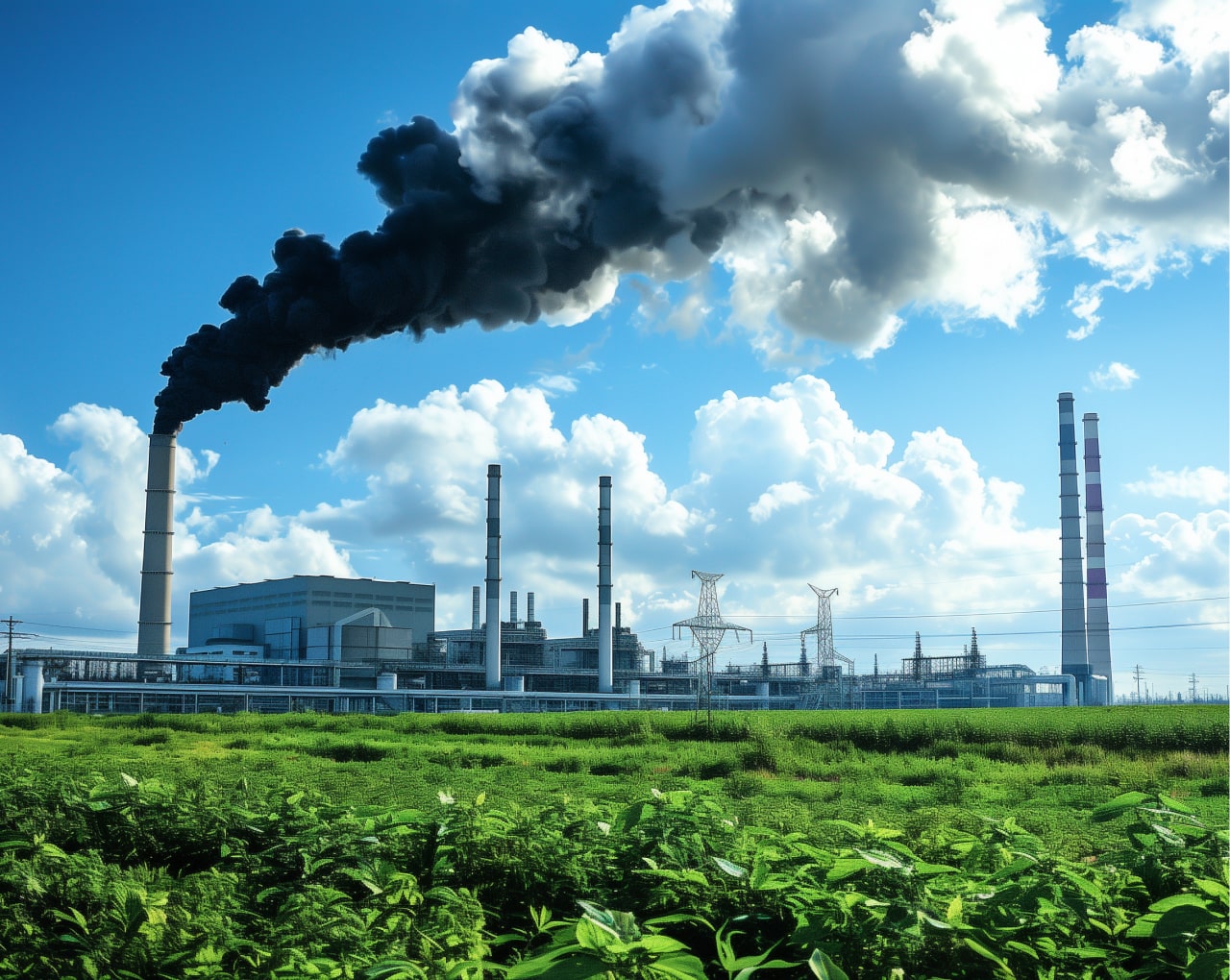AGROINDUSTRY’S NEGATIVE ENVIROMENTAL IMPACT
The agroindustry, encompassing agriculture, food production, and large-scale processing, ranks among the most environmentally impactful sectors, driving climate change, biodiversity loss, resource depletion, and ecosystem degradation. While its ranking varies by assessment criteria, its role in greenhouse gas emissions—particularly methane (CH₄) and nitrous oxide (N₂O) from organic waste biodegradation and the overapplication of fertilizers—is well-documented. Agricultural expansion, especially in tropical regions, accelerates deforestation, habitat destruction, and biodiversity decline, thereby reducing carbon sequestration capacity. The industry’s extensive water footprint (…)

(…) exacerbates environmental strain through excessive irrigation, runoff of agrochemical inputs such as pesticides and fertilizers, and eutrophication, while unsustainable land management practices such as intensive monocropping, overgrazing, and soil mismanagement further deplete fertility, destabilize microbial biodiversity, and threaten global food security. Notably, the agro-industrial sector generates substantial volumes of solid waste, primarily in the form of fruit pomaces, which contain significant bioactive potential but also contribute to environmental pollution. Despite their intrinsic richness, large-scale initiatives for their valorization and integration into ecological mitigation frameworks remain critically absent. These bioactive compounds hold considerable therapeutic potential for the prevention and management of chronic diseases; however, limited investment in advanced upcycling technologies has hindered their scalability for conversion into high-value-added functional ingredients for the food, cosmetic, nutraceutical and nutricosmetic industries, which increasingly demand sustainable bioactives under natural-label and clean-label standards. The integration of advanced upcycling technologies and circular economy principles into agroindustrial systems presents a transformative opportunity to convert fruit pomace into bioactive (…)
(…) ingredients with enhanced functional properties, significantly reducing industrial waste,minimizing carbon footprints, and enhancing human nutrition through the extraction and refinement of valuable phytochemicals and dietary fibers. By prioritizing circularity and sustainable waste valorization, the agroindustry can transition from an extractive-consumptive, waste-intensive framework to a regenerative upcycling model.
